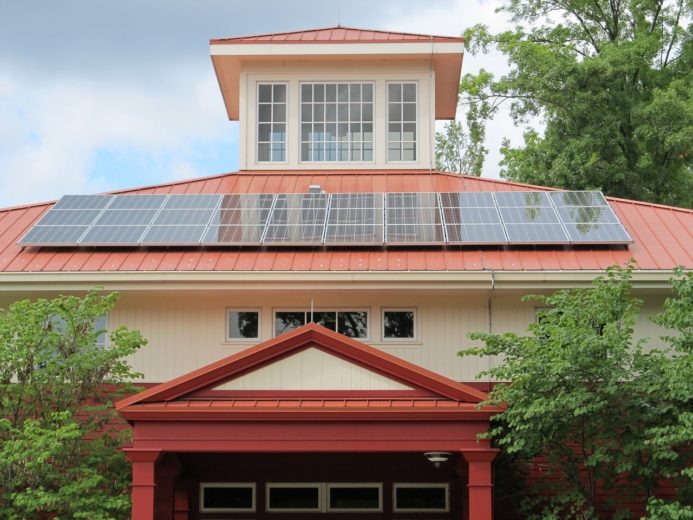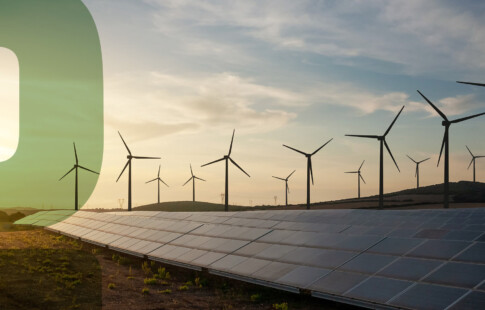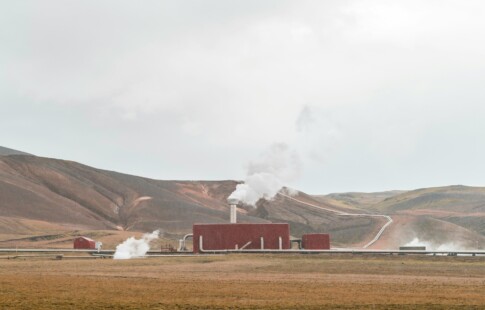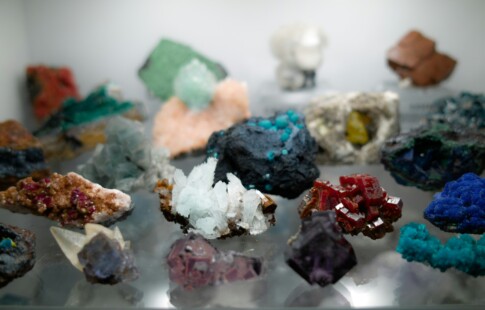
Geothermal vs. Solar Heating: Which Should You Install in Your Home?
We are reader-supported. When you buy through links on our site, we may earn affiliate commission.
“Green” home heating is the ultimate energy saver. Imagine the money you would save if you didn’t have to pay electricity or gas bills to keep warm — and think of the positive impact it would have on the environment if whole communities switched to green energy. If you are prepared to make a financial investment to update your current heating system, you will have to decide between two major sources of energy: geothermal and solar. Let’s take a look at geothermal vs. solar heating and see which is better for you.
What Is Geothermal Energy?
Geothermal energy is the harvesting of the Earth’s core heat through a series of underground pipes and converting it into power. The center of the earth is roughly as hot as the sun’s surface, almost 10,000 degrees, Fahrenheit. This heat radiates from the center and is an inexhaustible and potentially limitless supply of clean energy. We just have to find effective ways to harness this alternative energy.
What Is Solar Energy?
Solar energy is power produced by capturing the sun’s rays and converting the heat into electricity. This is achieved primarily through the use of solar panels which are filled with silicon solar cells. These cells are arranged in negative and positive sides, and they conduct electricity much like a battery. The more panels you have, the more electricity you can generate.
Regional Considerations
Most of your choice will come down to what climate you live in. If you live in the northern parts of the U.S., most of your utility expenses come from the demand to heat your home. In these regions, especially where it seems to never be sunny, geothermal energy makes sense. Geothermal systems are extremely efficient, and because of the expense of heating oil and natural gas, it only takes a few years to recoup your initial investment and begin saving you money.
In the Southwest, you get a lot more sunshine — sometimes up to 300 days out of the year. In these regions, solar energy would be a wiser choice. If you aren’t sure what to do, take a look at your past utility bills for help. Solar energy is better for you if you spend more money on air conditioning and than home heating. If you spend more to heat it, geothermal is most likely the way to go.
What Are the Downsides of Geothermal Energy?
To harvest geothermal energy, you have to dig deep holes in the ground to install the needed pipes and equipment. Your initial investment will be significant, and for people who live in the cities, digging deep into the ground may not be an option.
You will still have an electrical expense as well. Geothermal energy eliminates fuel costs and heating bills, but it can increase your electrical usage because of the heat pumps and equipment needed. Additionally, geothermal energy doesn’t produce exceptionally hot water in your water heater and takes longer to restore its heat.
Drawbacks to Solar Energy
The simplest concern with solar energy is that if the sun isn’t shining, you aren’t going to have power. There are methods of storing energy, but they won’t last forever. Cloudy, rainy days are going to affect your system’s ability to maintain power.
There’s an expense to set it up as well. You might get some tax credits for installing solar systems, but the upfront costs are still your responsibility. You have to buy solar panels, batteries, wiring and inverters, and you have to pay for the installation.
Also, solar panels take up a lot of space — but the fewer panels you have the less energy you can produce. Some roofs can’t accommodate the needed amount of panels, either, so they’d potentially have to be installed in your yard.
Production, transportation and installation of solar panels can produce polluting greenhouse gases, too. There are toxic and hazardous materials used in the production of solar panels which can escape into the environment. This pollution isn’t anywhere near the amounts caused by our exploration and use of fossil fuels, but still, it exists.
Another consideration is that solar panels aren’t weatherproof. If a tree branch hits a solar panel, it is destroyed. Solar panels are vulnerable to Mother Nature and may require ongoing maintenance.
Both Are “Green,” Just Different
When it comes to being green, though, solar panels and geothermal energy both are. Solar energy is abundant and renewable, and it’s available wherever the sun is shining. There are no moving parts or noises associated with its use, plus it’s versatile. You can use solar energy to heat your home and power your electronics and air conditioning. Solar energy can be used to distill water to make it safe for drinking, even to power satellites in outer space. The technology is improving and expanding.
Geothermal energy is also eco-friendly and renewable. There is no combustion of fuel, and the systems emit almost zero greenhouse gasses. Geothermal pumps use electricity, but not as much as traditional heating units. They are also ranked among the most efficient of the heating and cooling systems. Geothermal energy can be used to power a single-family home or used in industrial applications.
Geothermal energy is only limited by our ability to harvest it. It’s there waiting for us and will be there for the life of the planet. The technology is expanding, and scientists and engineers are always looking for new and better ways to use the earth’s energy.
This creates new “green” jobs. Installing geothermal power plants requires skills and intensive labor. People are needed for engineering, operations, management and administration of the projects and companies. Communities can enjoy an increase in their economic development as unemployed or underemployed works find jobs in the industry.
So, What’s the Answer?
In the geothermal vs. solar heating debate, there is no loser. Both “green,” renewable energies are much better for the environment than the polluting fossil fuels we continue to burn, and both require a significant financial investment to convert from traditional heating sources. However, the drawbacks associated with each may not apply to you or may not be a factor in your consideration.
Most of it depends on where you live and what your desired outcome is. If you have the money and space to do so, install both. But if that isn’t an option, choose the energy source that best suits your particular needs and concerns.
Share on
Like what you read? Join other Environment.co readers!
Get the latest updates on our planet by subscribing to the Environment.co newsletter!
About the author

Jane Marsh
Starting from an early age, Jane Marsh loved all animals and became a budding environmentalist. Now, Jane works as the Editor-in-Chief of Environment.co where she covers topics related to climate policy, renewable energy, the food industry, and more.





